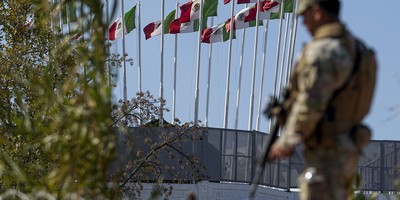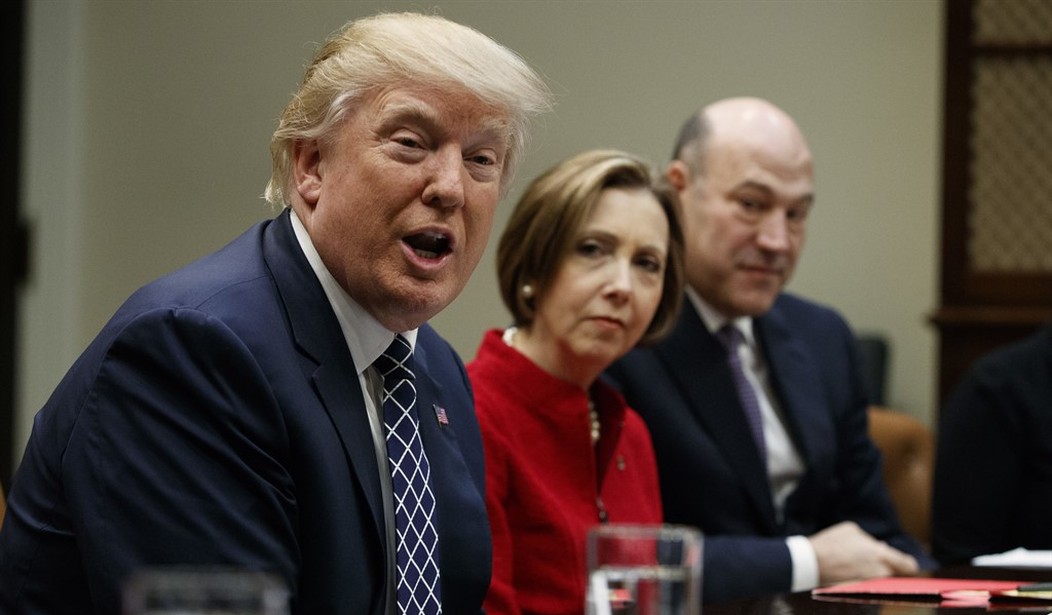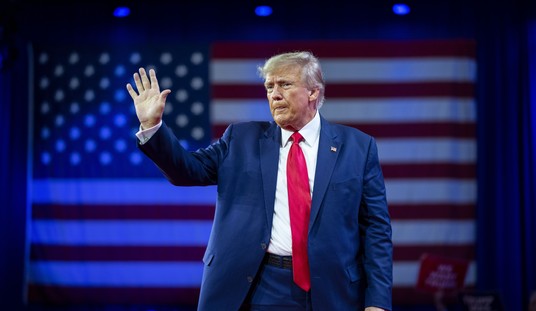As all Townhall readers, and everyone else in the world know right now, the USA had an election last November. The results of which still reverberate and are manifested in shock waves. The winning candidate had never held public office and showed little patience for the minutiae of public policy, especially in foreign affairs. The losing candidate, however, proudly displayed her foreign policy credentials like a set of tail feathers, trying to draw a contrast between her own overhyped expertise and the challengers supposed learning curve. Donald Trump, of course, defeated the former Secretary of State, and is now the president, and last week we saw potential foreign problems, if not potential disasters, just ahead as North Korea continues to rattle the nuclear sabre, Sweden proposes reinstituting conscription because of Russian provocations in the Baltic Sea, the specter of famine once again stalks Somalia, and the American-Mexican standoff over the border continues. So, foreign policy remains a great concern, and will remain so for the foreseeable future. Where a Donald Trump foreign policy will take the country a remains an open question, and the country awaits an answer.
During the campaign Mr. Trump suggested a largely non-interventionist foreign policy, one reminiscent of the policy suggested by then-candidate George W. Bush in 2000, before the World Trade Center calumny changed everything. Trump tapped into a vein of fatigue among the people, and an understandable desire for a break from the rigors of world leadership, if only for a short rest period. Still, it would be a mistake to underestimate this urge as a natural human desire for a “vacation” from the cares of the world, as Charles Krauthammer sometimes refers to the 1990s. The non-interventionist school of foreign policy has deep and honorable roots in America, and Trump may be aligning himself with that foreign policy viewpoint.
Back in 1940 the non-interventionists of both parties, and all political stripes, agree on the need to stay out of the new European war that had begun the previous year. The result was the America First Committee, a so-called isolationist pressure group, that worked to preserve American neutrality in the early stages of World War II. The interventionists, particularly those in the White House, denounced the America Firsters as anti-Semites, bigots, ignorant yahoos, and general numbskulls (dare we say a basket of undesirables?) The facts of the matter are quite different. The group was bankrolled by General Robert Wood of Sears-Roebuck and Sterling Morton of the Morton Salt Company, assisted by Robert McCormick, the publisher of the Chicago Tribune. Among the political leaders associated with the committee were Democratic Senators Gerald Nye of North Dakota and Burton Wheeler of Montana, along with Norman Thomas, the Socialist Party leader. Among other public figures involved in the movement were Joseph Kennedy and Charles Lindbergh. Among those involved in student chapters at prominent schools were Gore Vidal, and future Presidents John F. Kennedy, and Gerald R. Ford. The members of the group represented a veritable cross-section of successful Americans, not the racist, bigoted, Know-Nothings of liberal mythmaking. This type of informed non-interventionism would be similar to the Trump foreign policy, at least in the nominal sense.
Recommended
Still, Donald Trump will be confronted, beyond the campaign rallies and speeches, with the inescapable fact that the USA is the great power of the world. As the modern Romans, for better or worse, we must take an active role in the world. The question confronting Trump, his foreign policy team, and all Americans is: What is the American our role in the world? There are three recent precedents that Trump might employ when fashioning his foreign policy. He might choose to “go it alone”, as critics, somewhat mistakenly, labeled the George W. Bush policy. He might bury his head in the sand, or worse, he might simply run as we saw in the eight years from 2008-16. Finally, Mr. Trump might find that it is most prudent to pursue a cautious multilateralism, assembling partners to work with us in areas of mutual interest, in the mode of the Reagan-Bush 41 era.
Each of these three general policies carries some dangers. We must not allow the Obama policy of “leading from behind” to become the official position of the United States of America. The Obama Administration sought, as a secondary policy objective, the diminution of American power around the world, and largely succeeded. The American people see the lack of respect for our nation around the world, and this brings uncomfortable flashbacks to the glory days of Jimmy Carter. Do we really want to return to those thrilling days of yesteryear? As far as a “go it alone” policy, we may have to do that on matters of vital interest that are no concern of the world, in general. Border security, immigration law enforcement, and refugee control (i.e. building a wall) would fall under this heading. However, when dealing with potentially explosive situations and potentially dangerous adversaries it is imperative that our leaders show prudence, good judgement, and careful deliberation with allies before we make irrevocable decisions.
There is nothing particularly earth shaking about this declaration, as readers will no doubt recognize. General common sense comes into play when we realize that we cannot confront the increasingly aggressive Russians alone. Sweden, last week announced a possible draft of all eighteen-year-olds next year in response to Russian pressures against the Baltic states. They see the danger and would welcome American support. Likewise, we are dealing with an unstable and bombastic dictatorship in North Korea. If that country posed no threat to its neighbors it would, and should, be left alone. The North Koreans, have, unfortunately, turned to developing a nuclear weapon capable of reaching Seattle and Portland, in addition to most of the population centers of East Asia. Since this is matter of grave importance to South Korea, Japan, China and Canada we should invite these nations into a joint venture.
This thumbnail sketch neglects many areas of foreign policy, and due to space limitations cannot cover all of them. The Trump foreign policy will evolve slowly over the next few months. He does seem sincere in his non-interventionist views, but it is unlikely that Trump will succumb to a head-in-the sand approach, or the headlong retreat from power of the Obama years. That would be the antithesis of making America great again. A prudent multilateralism would serve the country well. The fate of the world may hinge on these decisions.

























Join the conversation as a VIP Member